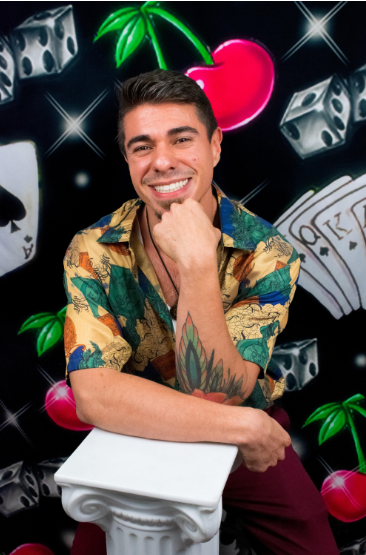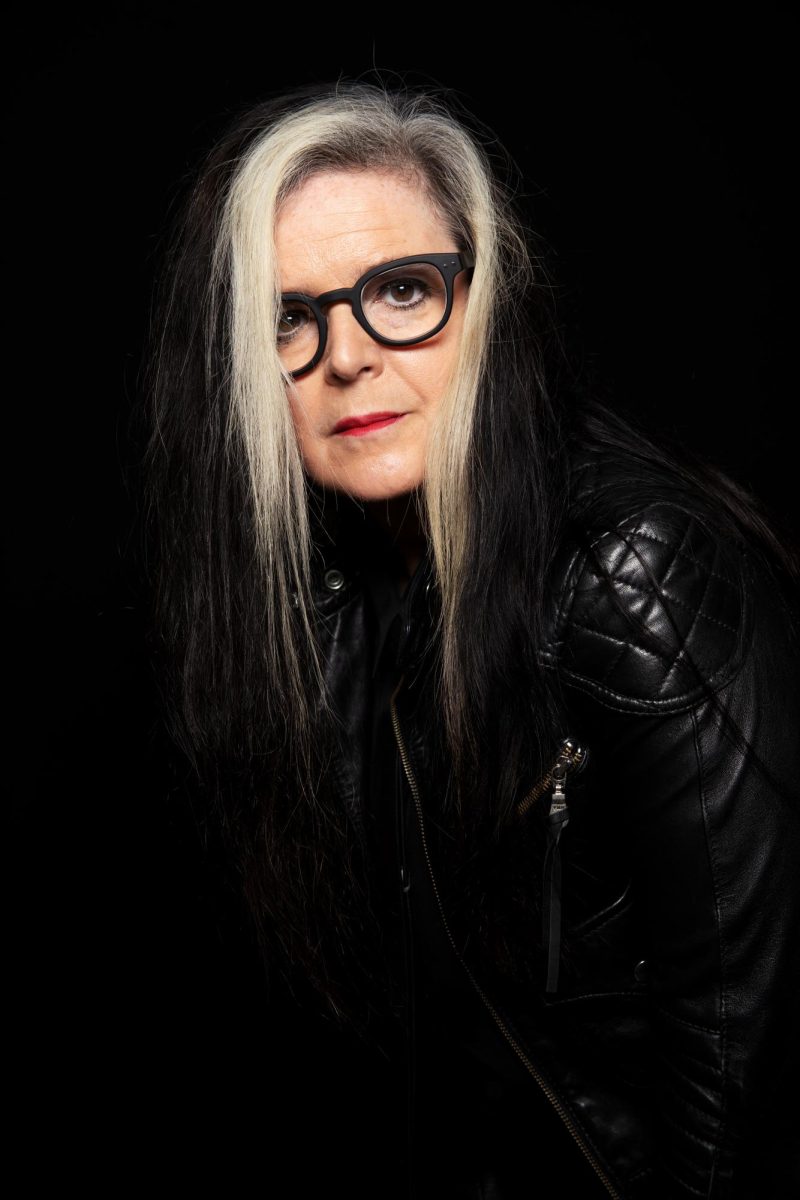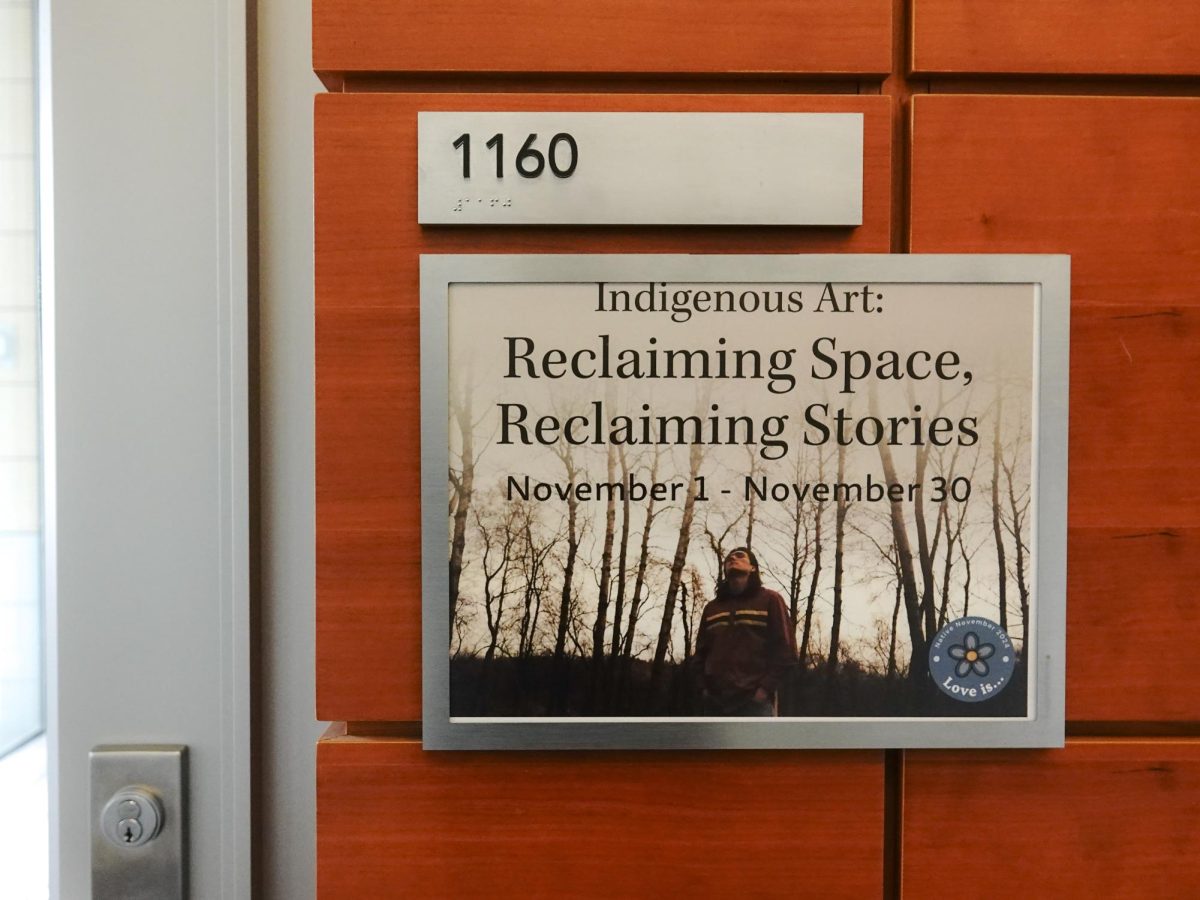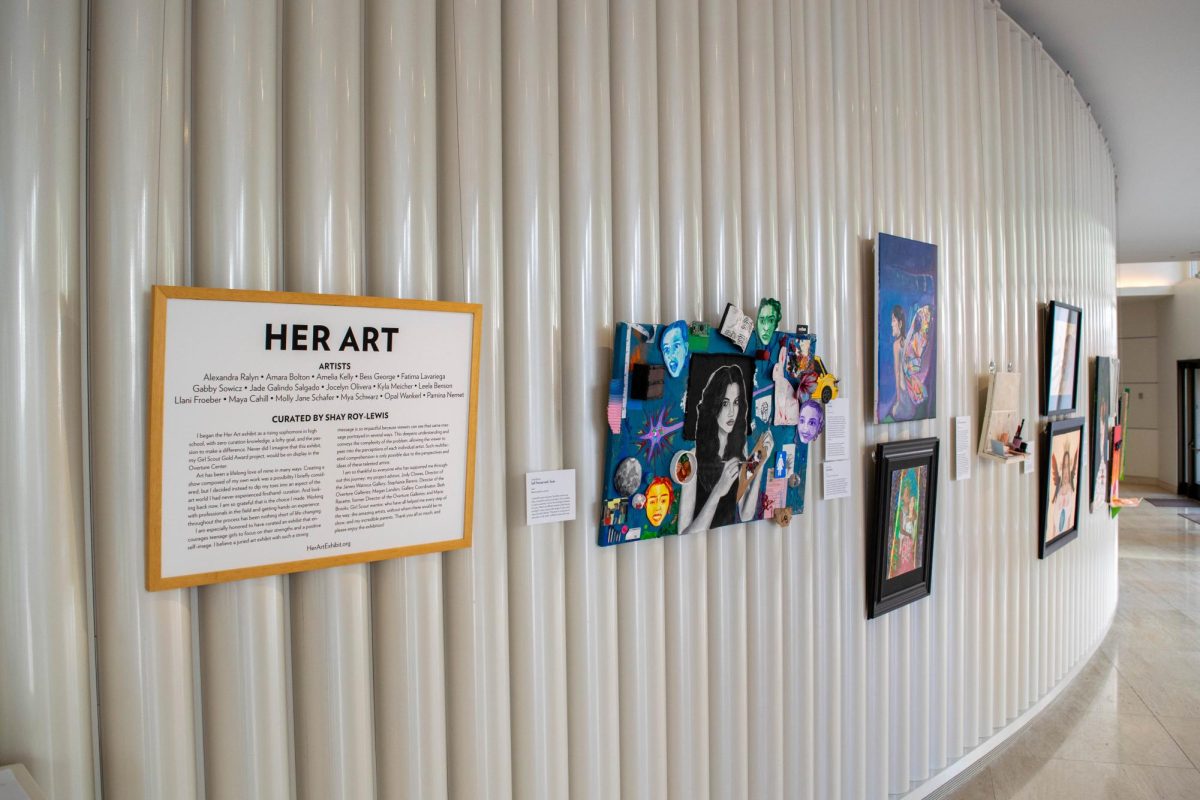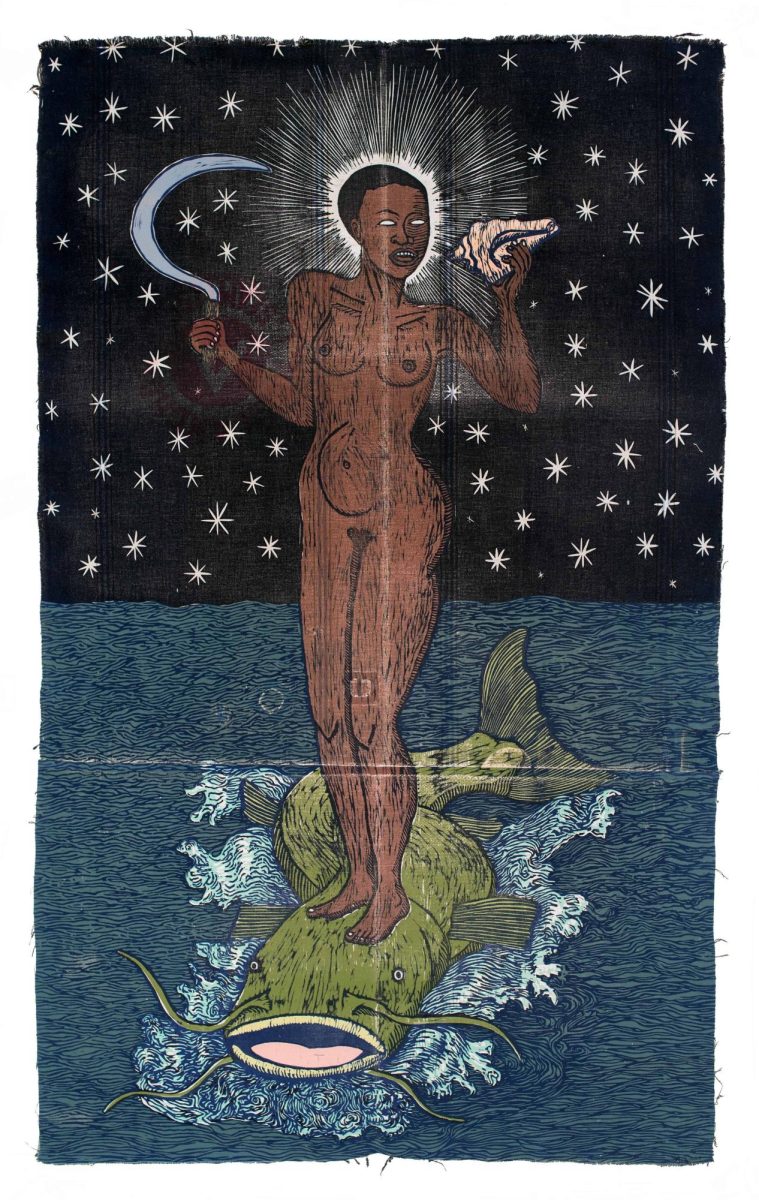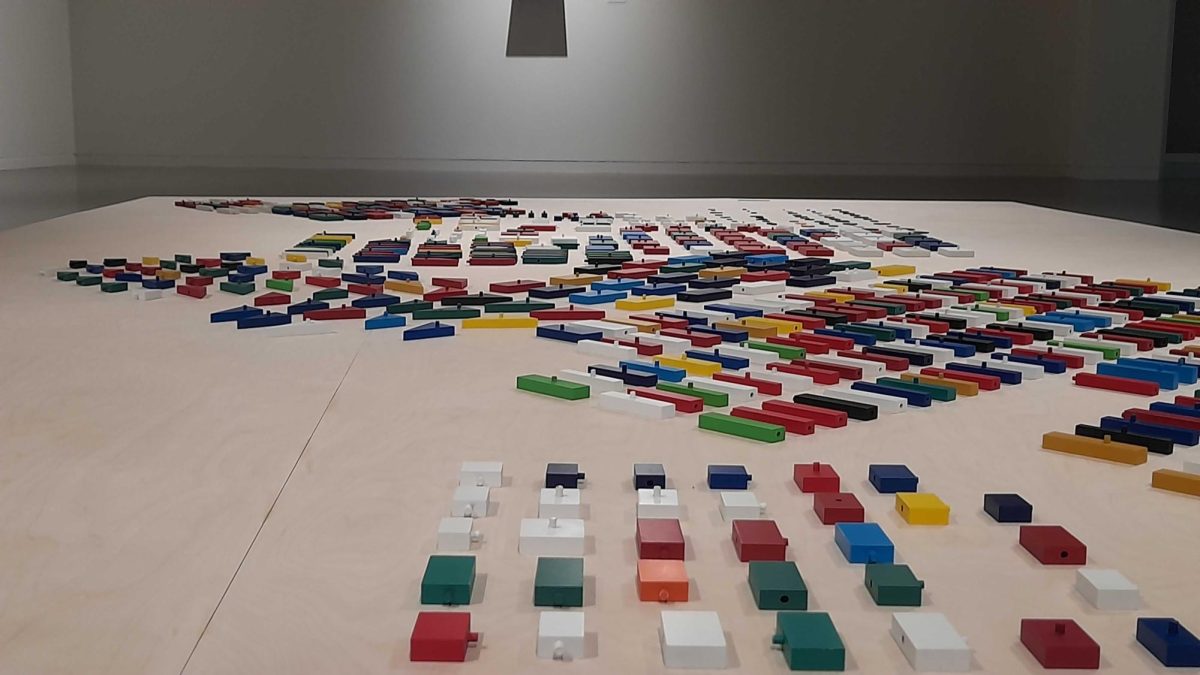Awarded to young alumni within 15 years of graduation, the Forward Award is a recognition of exceptional early-career achievement of those who embody the Wisconsin Idea: a passion to take learning beyond the classroom, according to the University of Wisconsin website.
Nominated by his mentor and associate professor in the Art Department Helen Lee, Carlos Eduardo Gacharná was the youngest of the five alumni who took the stage this year for the award. He was nominated for his efforts to provide an alternative career through art for children who cannot attend traditional high schools by teaching them his art form — something they can use as a skill set and to gain a meaningful experience. He presently works with artworxLA, a non-profit arts program with a similar ambition to his, providing an alternative livelihood for high-school dropouts across low-income communities in Los Angeles.
He considers himself a color and light-based artist dealing primarily with neon tubes with an interest in ceramics, glassblowing and black-light photography. He has a Bachelor of Fine Arts in ceramics and glassblowing from UW, where he graduated from in 2017.
After his time at UW, Gacharná moved to Los Angeles to start his career as an artist, conducting more than 400 workshops and impacting tens of hundreds of students according to the Wisconsin Alumni Association website. Today, he continues to run artworxLA’s arts program across 36 high schools.
Professor emerita featured in Wisconsin Life publication celebrating diversity
His story can be traced back to his early childhood experiences — immigrating along with his family from Colombia, growing up in Madison and later attending UW, where his art career would begin.
One of Gacharná’s first memories in Madison includes playing with lava lamps, he said — something which would soon bud into his passion for black-light photography of colorful flames. During his time in Madison, he would shift between five public schools, his passion for the arts becoming dormant as he tried to acclimate — he had to learn English to adapt to the culture of Wisconsin and the United States.
“There would literally be a van that ran on the Eastside picking up kids who didn’t speak English,” Gacharná said. “I ended up going through like six different public schools — a common experience for a lot of kids just moving around a lot. I don’t know if I ever fully assimilated into the culture in Wisconsin. I think I kind of grew up in spite of it.”
But in high school he discovered ceramics — something he continued to pursue at UW. As a freshman, Gacharná would begin teaching ceramics, initially assisting English and Spanish speaking adults to gain their General Education Development diplomas. Later he found the glassblowing program at UW, the oldest glassblowing program in the nation run by Helen Lee.
In his sophomore year, he took a class called “Service Learning in the Arts” and began working alongside workshops to teach children with charges against them to create murals. They would later present their work at a gallery and have their charges dropped. This would be Gacharná’s first experience with using his experience in the arts to help children repay the community without corporal punishment.
He later applied and received a grant to begin working with a middle school girls group called Girls Inc., which works to achieve equity and help young girls escape poverty. There, he began his first workshop conducted over the span of a year. With inspiration from Youth Services Librarian Jessi Havens, Gacharná conducted over 40 workshops and became the leading workshop facilitator for Making Justice, a library program that provides workshops for children in youth shelters and juvenile detention centers. It is run by associate professor of art Faisal Abdu’Allah. There, he had one of his most profound experiences teaching students in a juvenile detention center in Lynwood, California.
“It was like going back in time,” Gacharná said. “There was no modern technology, and child labor was legal until the 80s where they were forced to cut down bushes to prevent wildfires.”
Because there were no resources or technology, Gacharná would have his students make the designs and would later have those designs laser cut elsewhere. He showed them video recordings and explained the process, hoping to give them a connection with contemporary society. It left him with a better understanding of incarceration and an intriguing experience, hence why he works with them to the present day.
‘What do you want to do before you die?’ canvas on Library Mall celebrates student aspirations
Later Gacharná moved to Los Angeles and began working full time as an arts educator. There he started conducting online workshops for the Madison Public Library, going from 12 workshops per year to 12 workshops per week. It was during his time in Los Angeles that he began working for artworxLA as well.
Gacharná’s work has profoundly impacted many children individually, with some stating to the Getty Center that it was the most meaningful experience of their life, according to Gacharná.
“It was nice to be received in such a manner after growing up in Madison,” he told The Badger Herald about receiving the Forward Award. “It all started with that one [Service Learning in the Arts] class.”
He feels proud to have received the award and to be coming back to Madison in such a manner. Presently he continues to promote neon art — a dying art form according to Gacharná, who said that most neon artists work with restoration of beer signs.
Gacharná began his journey with the university and the support system provided by it. He urges the students to use the university’s resources.
“You have the power of the university — you must use it,” Gacharná said.
Gacharná continues his service to provide a meaningful experience to kids who do not usually have the opportunity and an alternate, better life for those who cannot attend high school. He continues to work in Los Angeles embedding the Wisconsin Idea.


